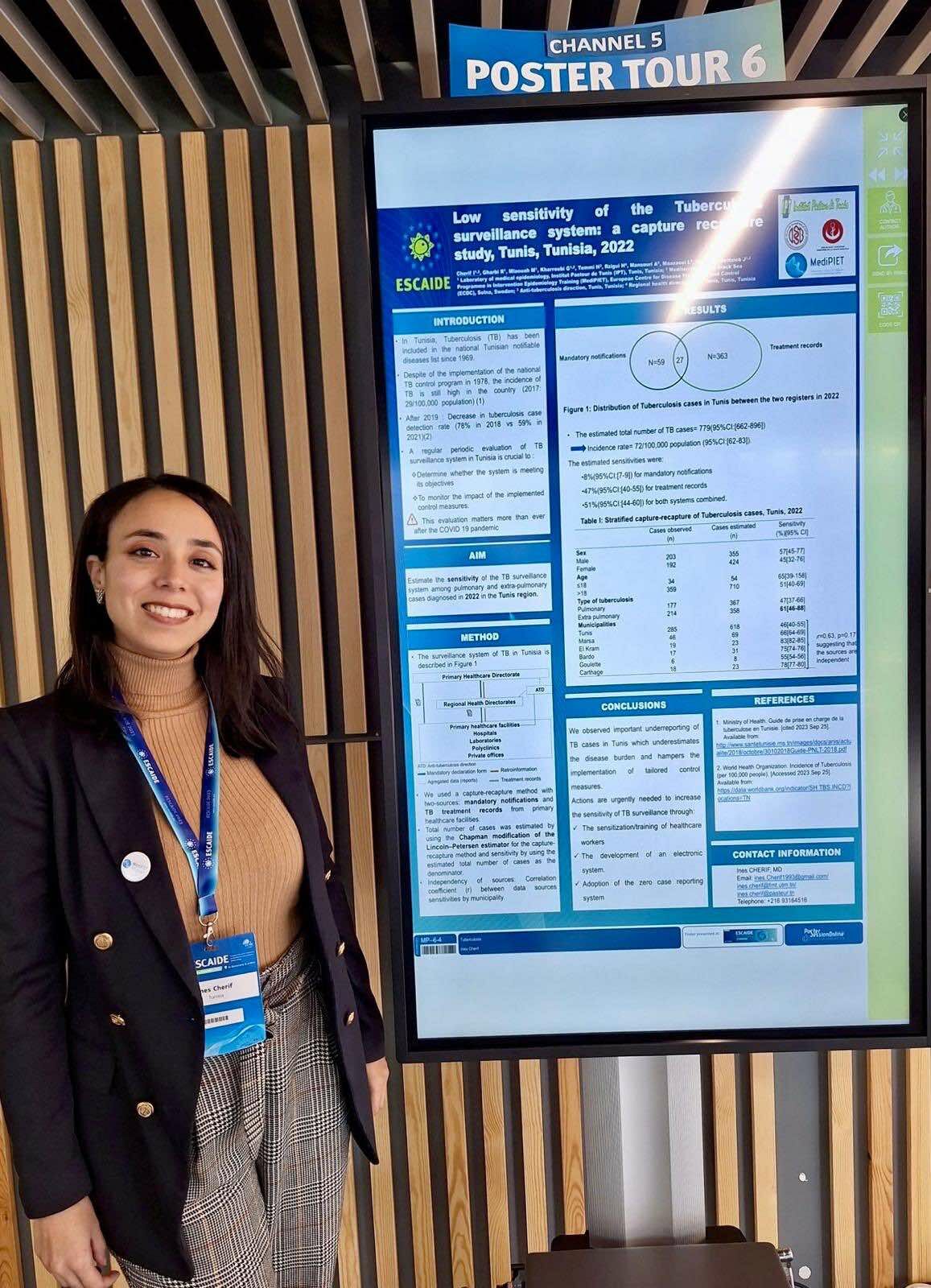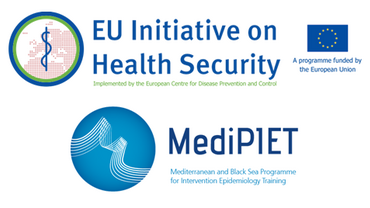Transforming tuberculosis surveillance in Tunisia
Meet Ines Cherif, a medical doctor with a specialisation in Preventive and Community Medicine from Tunisia. Over the past two years, she has worked as an assistant professor at the Pasteur Institute of Tunis and the Faculty of Medicine of Tunis. In September 2022, Ines started her MediPIET fellowship including a project focusing on tuberculosis surveillance in Tunisia, guided by the National Observatory of New and Emerging Diseases.

One of my first projects for the MediPIET fellowship was to evaluate an existing surveillance system. I decided to look into the tuberculosis (TB) surveillance system in my local region of Tunis. Tuberculosis (TB) is still a significant public health challenge in Tunisia. In 2017, the estimated incidence was 29 per 100,000 population, with some regions reporting rates exceeding 40 per 100,000. While the national TB control programme provides free vaccination and outpatient treatment, a decline in case screening was noticed which raised concerns about active case detection and underreporting. The COVID-19 pandemic worsened the situation by disrupting healthcare access and increasing delays in diagnosis and treatment.
I recognised the urgency of evaluating the TB surveillance system to address these challenges. The goal was to estimate the notification completeness of the system for pulmonary and extra-pulmonary TB cases in Tunis during 2022.
Innovative methods and collaboration efforts
To conduct this pilot study, I collaborated with the primary healthcare directorate and the regional healthcare directorate of Tunis to gain their approval to do this study. Using the capture-recapture method, the investigation team analysed two data sources, the first being mandatory notifications from the primary healthcare directorate and the second source was treatment records from outpatient TB facilities. Identifying duplicates was challenging because there was a lack of unique identifiers and the data formats were often not the same. To solve this problem, I worked with two other colleagues and we independently looked at and reviewed the data to ensure accuracy and minimise errors.
Key findings and next steps
Our study found an estimated 779 TB cases in Tunis in 2022. This corresponded to an incidence of 72 per 100,000. Alarmingly, the combined sensitivity of the surveillance systems was only 51%, indicating significant underreporting. These results showed the urgent need to strengthen the surveillance system to better reflect the disease burden and improve ways to prevent the spread of TB.
Encouraged by the findings, we are now expanding this study to a national level to look at regional disparities and better understand how well the system is accepted from the perspective of those who use it like healthcare professionals and public health authorities. This more comprehensive, national evaluation will provide important evidence about TB to policymakers and support the development of more effective public health strategies.
Personal reflections and MediPIET’s role
Leading this project has been an incredibly rewarding experience. I have had the opportunity to collaborate with national and regional stakeholders, learning from their invaluable expertise while building lasting professional relationships. These collaborations have not only strengthened the project outcomes but also fostered a culture of shared learning and resource pooling, which is vital for managing public health challenges.
The MediPIET fellowship has played a very important role in my journey. The training I received and the support from the MediPIET network were instrumental throughout this study and beyond. Feedback from peers and mentors provided me with the tools I needed to navigate challenges and achieve meaningful results. This experience has not only shaped my professional growth but has also reaffirmed my commitment to improving public health in Tunisia.






